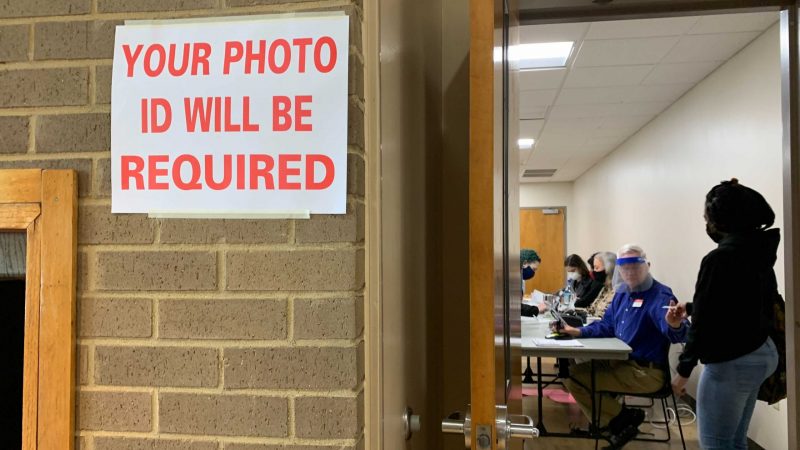JeffCo Probate Judge: tightened security will delay voting returns in the primaries
Update: Jefferson County will receive a second computer for vote counting, according to a statement from the Alabama Secretary of State Office to WBHM. A spokesperson says while there could be some delays in Alabama’s largest counties, he does not anticipate any ‘substantial delays.’
Jefferson County’s chief election official is warning that a new voting security measure will delay returns from the May 24 primary elections.
Probate Judge James Naftel said county and state election officials are working to plan how to expedite the returns, “but we won’t know how to improve the system until it happens.”
At issue is a new security measure imposed by Secretary of State John Merrill that moves all precinct returns to a central computer provided by his office.
The computer will have no internet connection until after the returns have been tabulated and transferred to a file.
Previously, the chief voting inspector at each of the county’s 175 precincts delivered a data stick from their ballot-counting machines to five locations in the county, where the data then was sent over a central network to the main computer.
Merrill’s security move prohibits voting data sticks from being processed at multiple locations. The chief election official will still deliver the sticks to one of the five locations, but they will not be processed there.
Instead, a county deputy will take the sticks downtown to the one computer.
“The results will never touch anything to contaminate the results,” Naftel said. “So, election night is going to be slower this year.”
The five centers are at the Gardendale Civic Center, the Center Point courthouse, the Bessemer sheriff’s office, Trinity United Methodist Church in Homewood and the Birmingham courthouse.
“As two to three returns come into the centers, deputies will be on-site to take the data downtown,” Naftel said.
On election night, the sheriff is by law in charge of all returns.
“It may not be an ideal plan, but it is all we’ve got,” he said.
Technicians at the Secretary of State’s office are aware of the problems that Naftel and other probate judges in large counties will have.
Jefferson has about 500,000 voters registered to vote across the county’s 175 polls.
Paper copies of the precinct returns also still will be posted on the doors of each polling place.
On the brighter side, Naftel said the county has hired its poll workers, and they will undergo training next week. COVID forced the county to limit training sessions to only chief inspectors in 2020.
“Now after four years, we will ramp the polls back up,” he said.
Parents, are you sure your kid’s car seat is installed right? Here’s how to know
In this visual guide, certified car seat experts walk through common installation mistakes and how to fix them. Learn what a secure car seat base and a tightly fastened tether look like and more.
Trump announces ‘major combat operations’ in Iran
Israel and the U.S. have launched strikes against Iran, with explosions reported in Tehran and air raid sirens sounding across Israel.
Trump says he is ‘not happy’ with the Iran nuclear talks but indicates he’ll give them more time
U.S. President Donald Trump said Friday he's "not happy" with the latest talks over Iran's nuclear program but indicated he would give negotiators more time to reach a deal to avert another war in the Middle East.
Bill Clinton says he ‘did nothing wrong’ with Epstein as he faced grilling over their relationship
Former President Bill Clinton told members of Congress on Friday that he "did nothing wrong" in his relationship with Jeffrey Epstein and saw no signs of Epstein's sexual abuse as he faced hours of grilling from lawmakers over his connections to the disgraced financier from more than two decades ago.
How the federal government is painting immigrants as criminals on social media
Experts say this kind of media campaign is unprecedented and paints a distorted picture of immigrants and crime
Pentagon puts Scouts ‘on notice’ over DEI and girl-centered policies
After threatening to sever ties with the organization formerly known as the Boy Scouts, Defense Secretary Hegseth announced a 6-month reprieve








